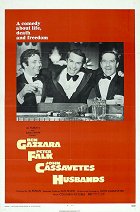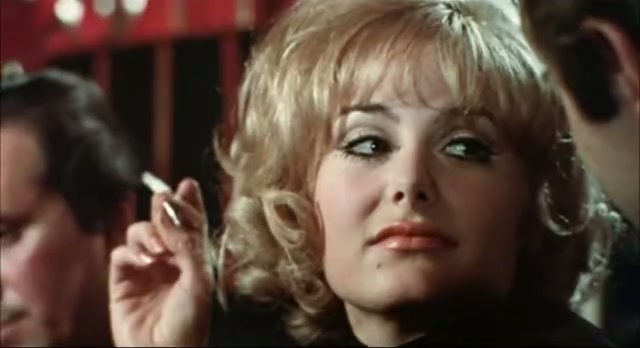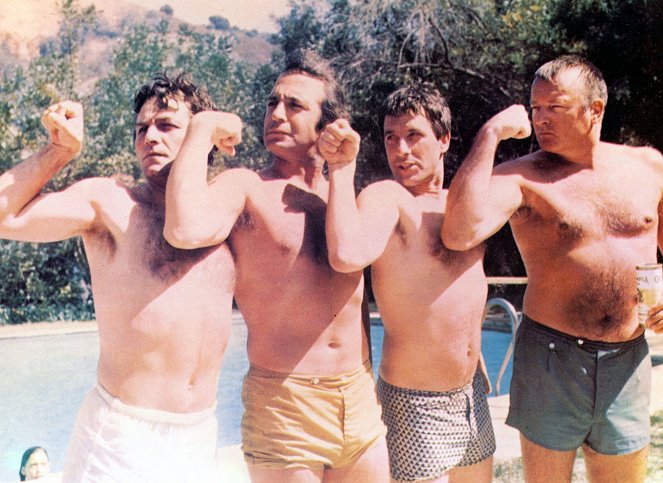Regie:
John CassavetesDrehbuch:
John CassavetesKamera:
Victor J. KemperBesetzung:
Ben Gazzara, Peter Falk, John Cassavetes, John Kullers, Xan Cassavetes, Nick Cassavetes, Judith Lowry, Charles Gaines, David Rowlands, Jenny Runacre (mehr)Inhalte(1)
“Ehemänner” erzählt die Geschichte dreier Männer im besten Alter, die mit ihren Gattinnen in New Yorker Vororten leben. Der Tod eines gemeinsamen Freundes bringt die Männer wieder näher zusammen und sie gönnen sich einen richtigen Männerausflug. Als sie jedoch schließlich in London landen, müssen sich die drei mit ihrer eigenen Sterblichkeit auseinandersetzen und entscheiden, wie sie den Rest ihres Leben verbringen wollen. Und ihr Enthusiasmus über die wieder gewonnenen Freiheiten hält nicht lange an. (Verleiher-Text)
(mehr)Videos (1)
Kritiken (1)
Husbands comprises a trio of interrelated character studies that, taken together, offer an honest portrait of a crisis of middle age and of the middle class, which fails to respond to rapid social changes. Cassavetes took his “direct cinema” directing style to the extreme with this autobiographical bromance, which was supposedly intended to help him get over his brother's death. In long, seemingly unscripted takes, he lets the camera watch the actors deal with emotionally complicated situations. Instead of Gazzara, Falk and Cassavetes himself reciting their lines in predetermined positions and in clearly composed shots, the camera has to busily respond to their unpredictable movements. They often have their backs turned to the lens or they stand so close to it that their faces are blurred. This is probably the reason that Cassavetes practically does not use analytical editing, dividing the film space into separate sections (establishing shot, shot/counter-shot), but instead prefers objective shooting, which is not bound to the perspective of any of the characters (however, the film quite clearly adopts the perspective of the trio of protagonists, as is obvious from its politically incorrect machismo – we either don’t see the men’s wives and other women at all, or we see how they are battered and used for the satisfaction of men’s desires). The maximum trust that Cassavetes places in the actors puts his method at the opposite end of the spectrum from the signature style of Alfred Hitchcock, who had every movement of his actors under his complete control. On the one hand, the subordination of form and style to the actors reinforces the impression of spontaneity, the impression that we are watching an unmanipulated situation as it unfolded during filming; on the other hand, it leads to such laxity of the narrative that it becomes irrelevant how many minutes have passed and how much longer the film will run. It wouldn’t be entirely fair to say that the film deserves the “home video” label due to its narrative structure and its aesthetics, but, in my opinion, Cassavetes went too far by not employing a narrator who would lead the characters from somewhere to somewhere. Clearly, my perception of films is excessively burdened by the need for a concise, "classically Hollywood” plot, and I cannot greatly appreciate a work that primarily tries to depict a certain state of mind (the entire film can be seen as an attempt to fill an empty space and escape the fear of the future initiated by the opening funeral). 70%
()


